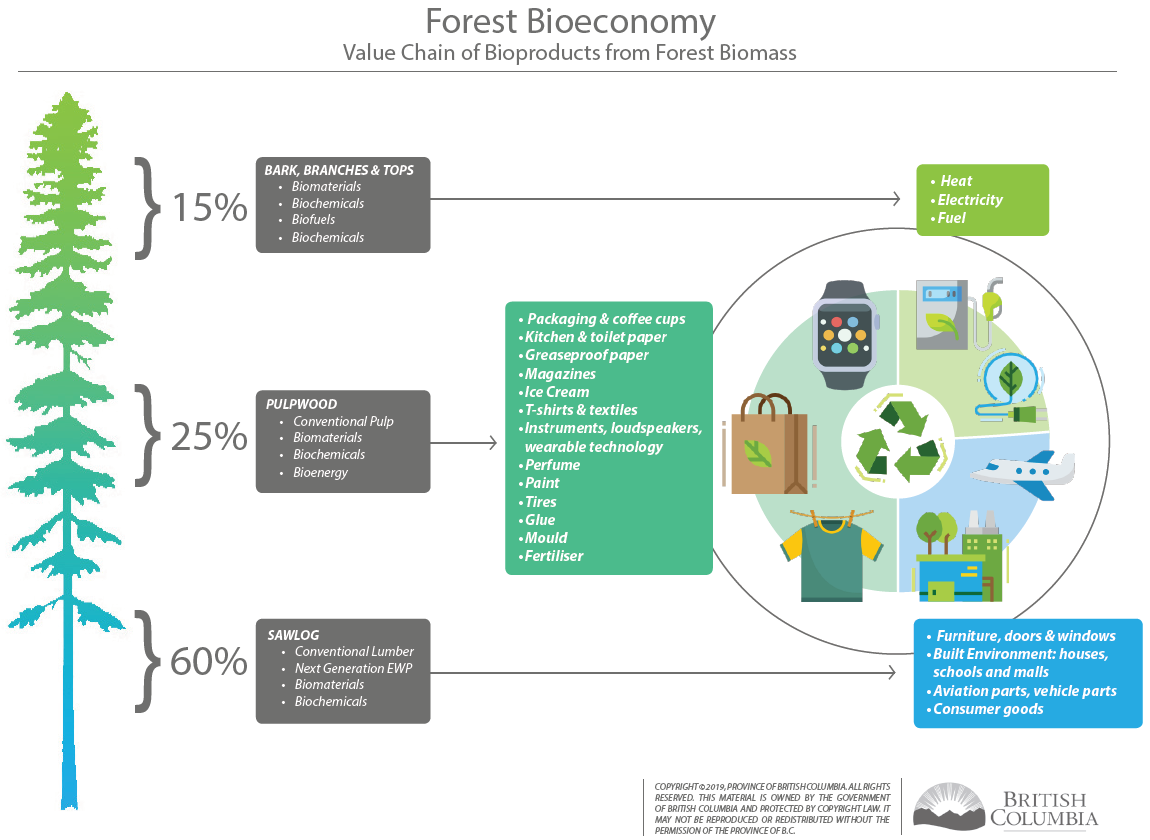Lhtako Dene Nation, in partnership with Nazko First Nation and in collaboration with the City of Quesnel and Clean Energy Consulting, are leading a new Biomass Utilization Scoping Study. The study will include a comprehensive biomass inventory, and work to define and rank project opportunities based on the amount of available biomass and on their alignment with the short-term and long-term objectives of the project partners. Some of the desired outcomes include long-term employment, wildfire risk reduction, and ecosystem stewardship.
Biomass is organic material from all parts of the tree, including wood waste from forest management activities, and is the main input for making bioproducts such as consumer goods and industrial products, as pictured below.

The study will build on previous work and, through the activities, will enable the project partners to determine the alignment, feasibility, and requirements of a full spectrum of opportunities to utilize the available biomass while strengthening the community and local industry. The group intends to then progress a project (or projects) to meet the Nations’ objectives for better utilization of undervalued biomass in their territories and the overall Quesnel timber supply area.
In summary, the objectives of the study are to:
- Identify the available fibre and its cost & quality;
- Understand values, priorities, and challenges to be considered during the evaluation;
- Identify product and technology opportunities that fit the available fibre and associated economics;
- Provide ranking and recommendations to enable project partners to select appropriate opportunities for development; and
- Develop a work plan to advance preferred opportunity(s) to obtain project financing.
Collectively, the project partners envision opportunities for new bio-products, uses for underutilized waste streams, and ways to extract value from supply chains that will stimulate and sustain the forest industry for future generations. These opportunities can be challenging to evaluate due to the complexity of interactions between existing partners, overlapping feedstock specifications, and risks associated with developing projects and operating facilities. This project aims to align the expected outcome with objectives and long-term visions for resiliency and stewardship, using an open and transparent process, so that the work can benefit our communities and improve stewardship and value in the forest industry.
Work will begin mid-December, with the initial biomass inventory phase to be completed by mid-March 2021.
To learn more about the City of Quesnel’s Forestry Initiatives Program, visit quesnel.ca/forestry
No comments:
Post a Comment